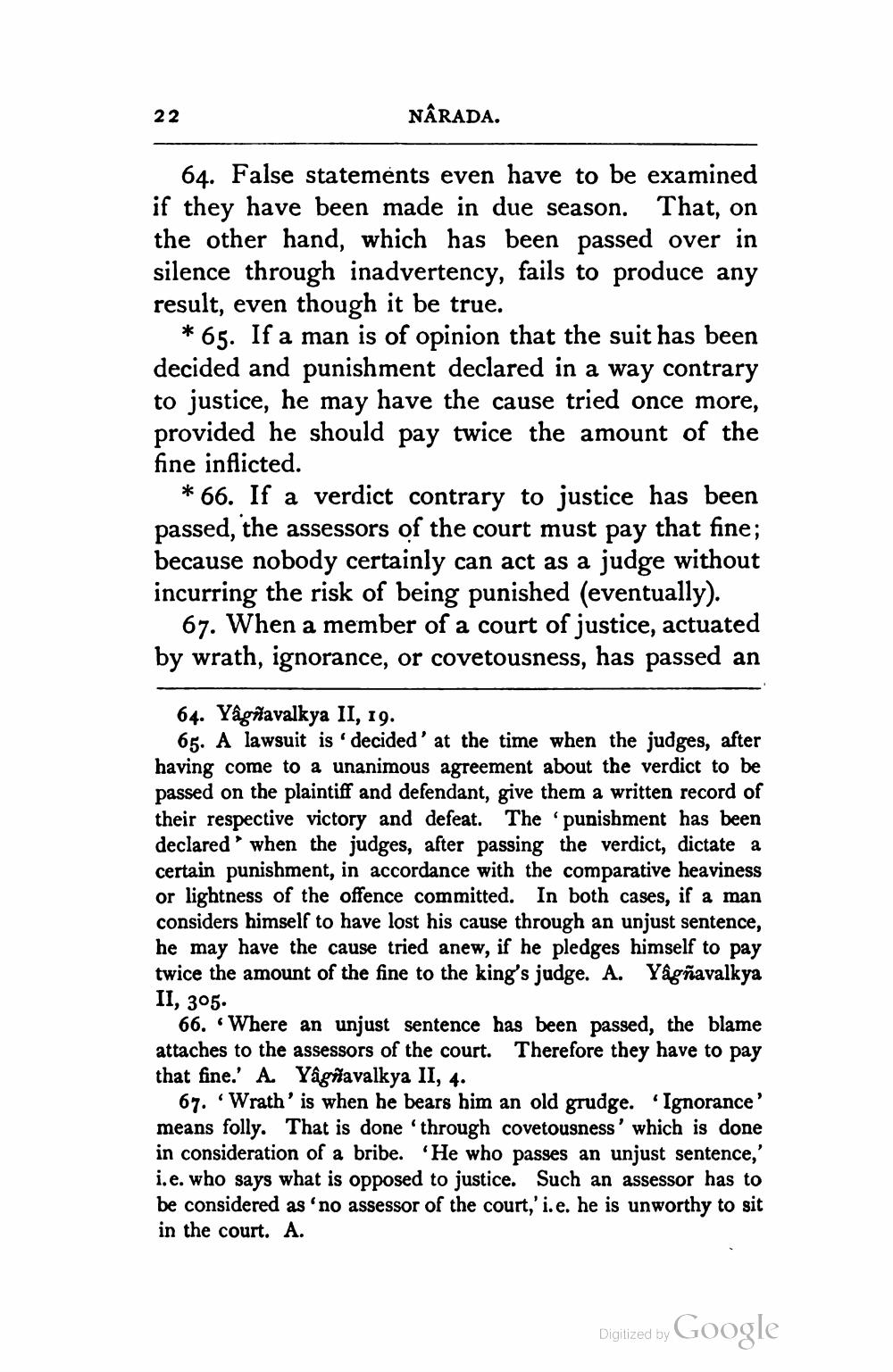________________
22
NÂRADA.
64. False statements even have to be examined if they have been made in due season. That, on the other hand, which has been passed over in silence through inadvertency, fails to produce any result, even though it be true.
*65. If a man is of opinion that the suit has been decided and punishment declared in a way contrary to justice, he may have the cause tried once more, provided he should pay twice the amount of the fine inflicted.
*66. If a verdict contrary to justice has been passed, the assessors of the court must pay that fine; because nobody certainly can act as a judge without incurring the risk of being punished (eventually).
67. When a member of a court of justice, actuated by wrath, ignorance, or covetousness, has passed an
64. Yâgñavalkya II, 19.
65. A lawsuit is 'decided' at the time when the judges, after having come to a unanimous agreement about the verdict to be passed on the plaintiff and defendant, give them a written record of their respective victory and defeat. The punishment has been declared when the judges, after passing the verdict, dictate a certain punishment, in accordance with the comparative heaviness or lightness of the offence committed. In both cases, if a man considers himself to have lost his cause through an unjust sentence, he may have the cause tried anew, if he pledges himself to pay twice the amount of the fine to the king's judge. A. Yågñavalkya II, 305.
66. Where an unjust sentence has been passed, the blame attaches to the assessors of the court. Therefore they have to pay that fine.' A. Yâgñavalkya II, 4.
67. Wrath' is when he bears him an old grudge. Ignorance' means folly. That is done through covetousness' which is done in consideration of a bribe. "He who passes an unjust sentence,' i.e. who says what is opposed to justice. Such an assessor has to be considered as 'no assessor of the court,'i.e. he is unworthy to sit in the court. A.
Digitized by Google




